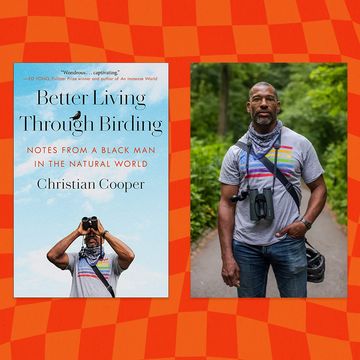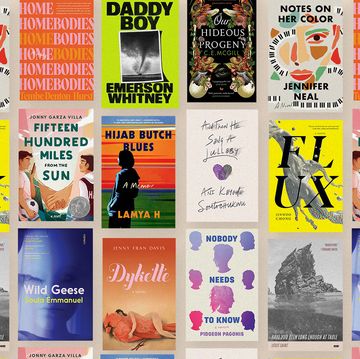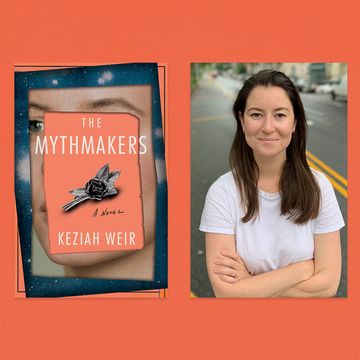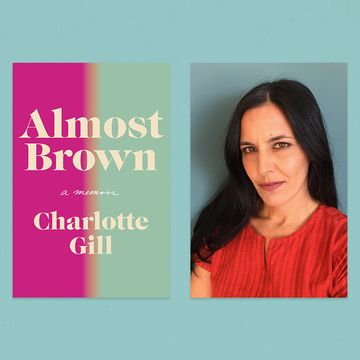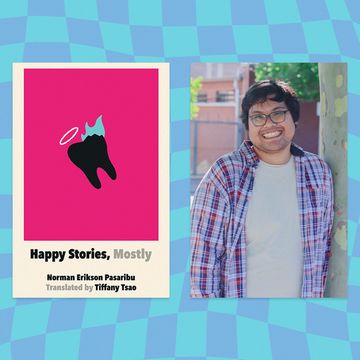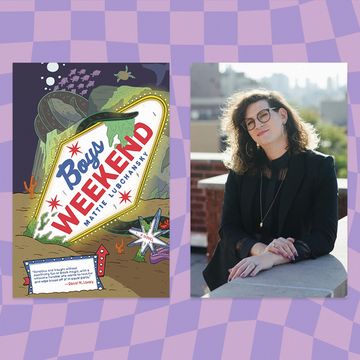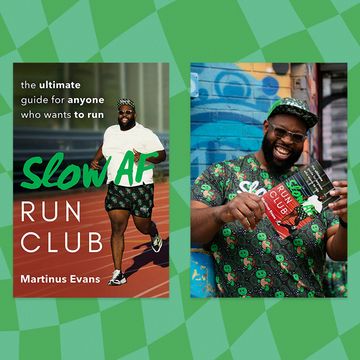Maureen “Mo” Ryan has been writing about and reporting on movies, TV, and Hollywood for more than three decades, and yet it feels like her new book, Burn It Down: Power, Complicity, and a Call for Change in Hollywood, is the culmination of her reporting career.
Ryan taps into her deep network of industry insiders and stars to present powerful and insightful interviews about some of Hollywood’s massive missteps and repeated patterns of harassment and bias. From groundbreaking interviews with the cast, including Harold Perrineau, and writers of Lost to discussions of Saturday Night Live and more, Ryan wields her sharp reporting and writing skills to break down various ways that the powers that be can seek to make meaningful changes in the future. Will they listen? That remains to be seen, but the veteran reporter lays the groundwork for logical pathways toward significant change, which is what truly makes Burn It Down such a fantastic outlier in the genre. Yes, there are plenty of terrifying tales of Hollywood gone wrong in the book, but it’s Ryan’s eye toward true, lasting change that ultimately makes Burn It Down a must-read.
Shondaland recently sat down with the author to discuss the book, how these horrifying things just keep happening, how the system can finally change, and so much more.
SCOTT NEUMYER: There are some heavy topics covered in this book. It couldn’t have been easy to write. How are you holding up?
MAUREEN RYAN: Well, it’s mixed. I think that I have learned much more about what matters to me and what doesn’t, and I’ve had to dig deeper to find the things that are enjoyable, or relief from stress. I definitely appreciate the relationships I have even more greatly after everything we’ve gone through over the past few years.
I’ll be honest with you, Scott. During a worldwide pandemic, was it smart of me to take on writing a whole book about exploitation, abuse, misconduct, and other unsavory things that occur in the entertainment industry? I don’t always think that was the wisest decision I’ve ever made. I definitely can see the logic chain of how I got there. I’ve always wanted to write a book [using] the conversations that I am privileged and honored to have — and I’ve met so many amazing people, and witnessed the bravery of so many people who risked a lot for the stories I’ve done for the book. But you also have to really be careful. These are challenging conversations, and you are taking people’s careers in your hand sometimes, or it feels that way, so there’s a lot of weight to all of that.
I have a great deal of pride in the work that I do and the way that I do it, but it’s challenging. The system in Hollywood is not set up to foster these kinds of accountability dialogues, so you really feel like you’re pushing a rock uphill a lot of the time.
SN: In a way, I feel like this is the book you’ve been writing your whole career, but I know a lot of that final work — the final interviews and the majority of the actual writing — came in the past couple of years during the pandemic. Did that affect your ability to do the work? Did it change how you approached the work?
MR: Well, I was definitely aware that everybody was dealing with a hard time. You’re never not aware of that. But weirdly, it actually didn’t affect my ability to do reporting because I don’t live in L.A. or New York, so I am always talking to people on the coasts. But I’m always aware that I’m wading into deep waters and dealing with difficult topics with people, so I guess I was extra aware of that. And it’s a hard time for people, so I had to really choose my targets wisely. I think I have always done that, but I had to be really aware of “If I’m going to walk into this difficult labyrinth, what are my reasons for doing it?” I would rather people look at the bigger picture, and we absolutely should call individuals to account, but in most cases, these individuals have a lot of systems and individuals and companies that enable their behavior, so unless we make it clear that these companies and systems and people and larger entities are allowing those to happen, we’re just going to keep having these repetitive conversations. And that, to me, kind of got old.
SN: It seems like it’s more about burning down the forest than chopping down the individual trees.
MR: Absolutely. I wish I had put that in the book [laughs].
A repetitive theme in the book is that I often get either a “no comment,” or no response at all. People who work for these big companies, where I’m asking the big company not just about the individual but “What are your workplace norms? What are you doing to prevent this? What are you doing to create an environment where this won’t happen again, with anyone? But also, what about this person?” And nobody replies to me. That’s truly puzzling. Of course, from a PR perspective, I know that’s a thing that people do, but I do want the conversation to be about “What are you doing to remove elements of exploitation, abuse, harassment, misconduct, and patterns of other unprofessional or damaging behavior? What are you doing to root those out in the future and presently?” I’m not actually — still to this day — 100 percent sure why people would not want to at least have that conversation, even if they don’t want to get into the weeds about an individual. And that’s really what I’m looking for at this stage.
I think that there are systems in play (and they’ve been in play for a really long time), and there are norms and customs and protections that get extended. Part of the reason I wanted to write the book is because I was frustrated a couple of years ago when it just felt like there was this vibe of “Okay, we’re tired of this topic now, and we probably fixed it.”
That’s why I wrote about Scott Rudin in one of the opening chapters. His behavior was not even an open secret. It was just open.
SN: And far too often, it’s still being allowed to happen.
MR: Sure, Scott Rudin stepped away from this and that and the other thing, but no one wants to talk about it. All these people who worked with him have no comment. And are we really going to sit here and say that Scott Rudin is the only person who has behaved that way? I don’t think that’s true. You can point to movies from the 1930s or the ’50s where there’s a movie producer, and it’s this guy who chomps on a cigar and screams at people and chases the secretary around the desk. This is a norm that we have all absorbed, including me, and it just felt like this is the industry doing that thing that it often does: “Well, we talked about a thing. We felt bad about it for a hot minute. And we’re done now.”
SN: Yes, and it seems to be that way with a lot of things that are difficult to talk about: equality, gun violence, and health care, for example. It just fizzles out. And I don’t want to blame the people, the everyday folks, because I think so many people are just utterly exhausted. But it shouldn’t be up to us to have to continue that conversation. It should be about these systems fixing things so we don’t need to have these conversations.
MR: I have talked to so many people who have put themselves on the line, put their careers on the line, and it’s very tiring. So many people have put so much on the line, but I’m really tired of this idea that they have to keep doing that. We can’t talk about these systems of exploitation or enabling without talking about who has the power to nurture those systems and make sure they keep on rewarding people who are not causing good outcomes. The companies and the entities and the people that are at the top tiers, it’s been a Hollywood move forever to just talk about something, pretend that that conversation actually changed something, and then move on.
SN: It’s the same thing with under-represented communities.
MR: I had a quote that didn’t make it into the book, but it’ll never leave my brain. Someone told me that a high-level network executive said at one point — maybe four years ago — “Are we still doing that diversity thing?” And the thing is this: Is inclusion, you know, skinny jeans? Is it like a trend, and when we get tired of it, we put it back? Because, as you say, people who are working in the industry definitely, quite often, if they’re from historically excluded communities, they see it that way — that they have a window of opportunity, and then it’s going to slam shut.
I’ve been thinking about this recently. I think that having been such an agitator for change, for better working conditions, for inclusion, for all these things, I do think that the gates kind of opened in the last five or six or seven years. But what they did was open up in a way that was almost to the detriment of many, certainly on a financial basis. It just becomes draining over time. And especially as people are making less and less money across this spectrum, from the lowest assistant to people whose names you would know, actors and producers and writers and directors. There’s just so much frustration with what is expected for a system that is not sharing out the compensation for success in a way that people see as fair.
SN: One of the things I love about this book is that the final third of the book is really about “Here’s the blueprint. Here’s how you can change. Now it’s up to you.” That’s what makes this book so different from others in this genre. Of course, there’s all the spicy stuff, but it seems like it was really important for you to be able to lay out that road map for folks as well.
MR: It’s so heartening to hear you say that. It was really important to me also to talk to people who had been through terrible work environments. And so often, what they encountered was bosses who thought, “Well, I was put through the wringer. So, now it’s my turn to be the abusive monarch.” That’s not okay. And one thing that Hollywood does a lot, especially the higher tiers, is turn away from what’s uncomfortable, ignore what’s uncomfortable, and/or act like what occurred is just, well, it’s just fate. It just had to be that way. And it’s like, “No, you don’t. You do not have to be that way. It does not have to be that way.”
And I don’t think that we fixed everything because Harvey Weinstein’s in jail. That was a mentality that came up a lot. I cannot tell you how many times people said to me, or I heard through the grapevine that people were defending their actions this way: “Well, I wasn’t a Weinstein, right?”
SN: That’s terrifying.
MR: Hollywood is a moving target. The book will be out of date a year from now, maybe six months. But I think there are things that are eternal. And I think that for me, the biggest thing is let’s illuminate these norms and these myths and not hide behind the thinking that “Well, everyone’s trying their best, and everyone’s basically a good person. And these things are outliers and anomalies.” These bad, terrible things that we heard about are not anomalies. I wish I could say there are a lot of people working to make terrible work situations an anomaly, but we’re not there yet.
SN: I think that what the book does so well is open that conversation. It allows us to keep talking, which is the only way we’re going to change things.
MR: Honestly, what I hope it does is make people with power understand. “No, you’re not done. You’re not done. Nobody’s done.” And if you want to put out these press releases saying you care about employees and their dignity, and you want them to work in humane, professional workplaces, then you have to actually do that because whether or not you actually care about this stuff, people have access to the press. Now they have social media. You can’t control the narrative the way the studios did even 15 years ago, let alone 30 years ago. Everybody’s got to do the work and really mean it this time.
This interview has been edited for length and clarity.
Scott Neumyer is a writer from central New Jersey whose work has been published by The New York Times, The Washington Post, Rolling Stone, The Wall Street Journal, ESPN, GQ, Esquire, The Boston Globe, AARP, Parade magazine, and many more publications. You can follow him on Instagram and Twitter @scottneumyer.
Get Shondaland directly in your inbox: SUBSCRIBE TODAY





